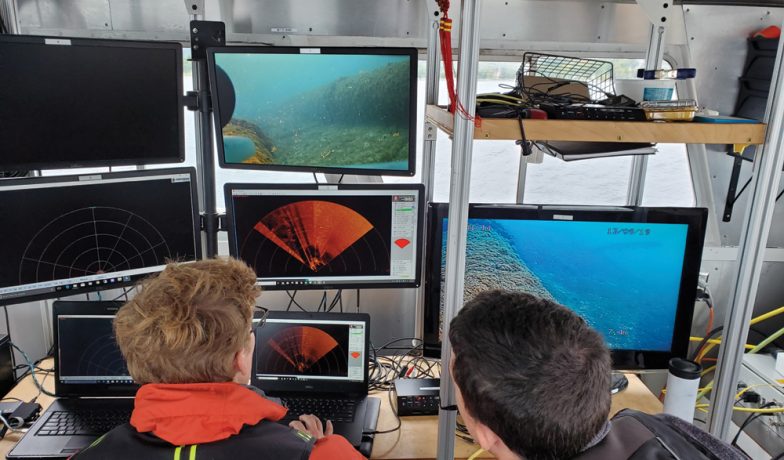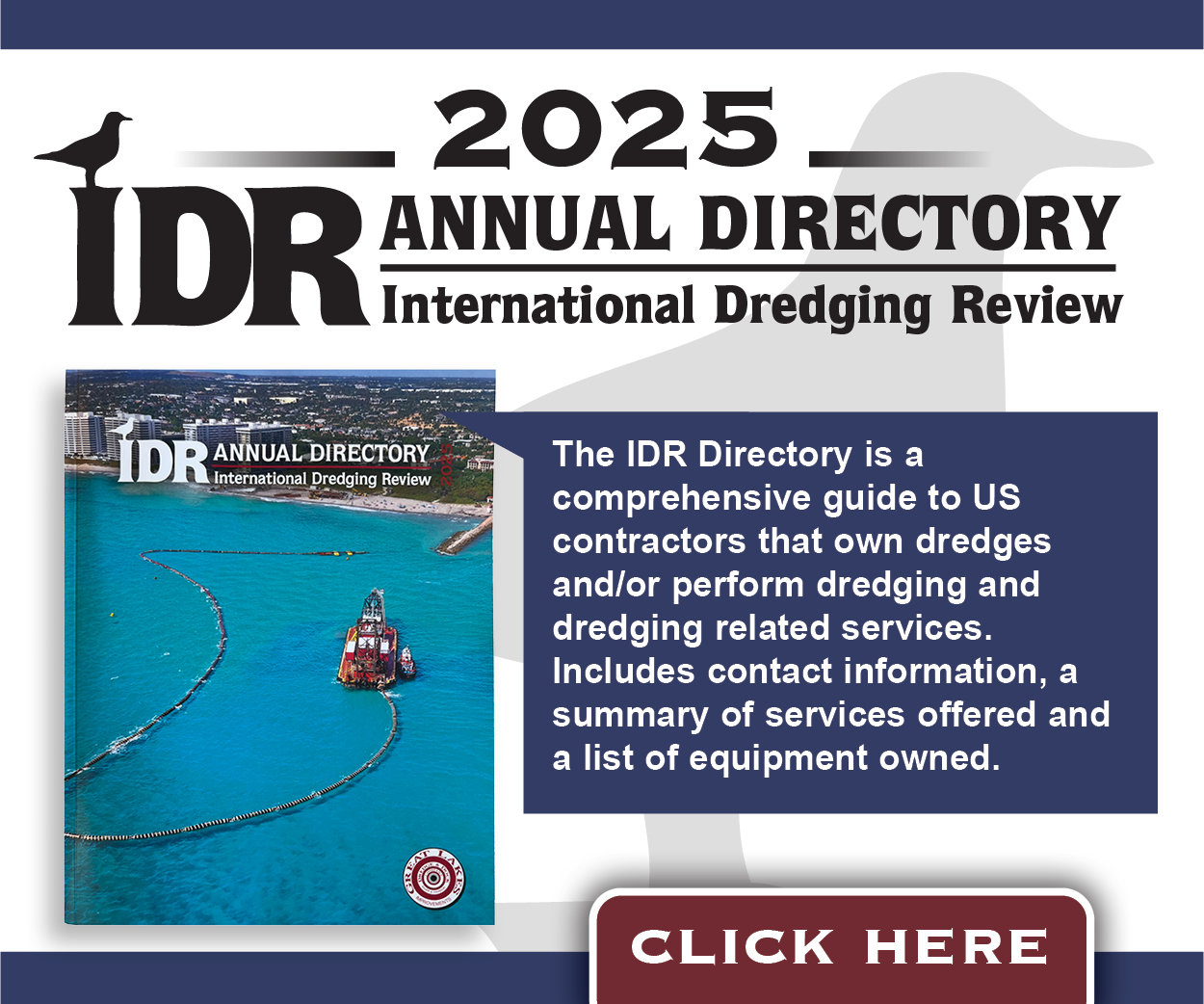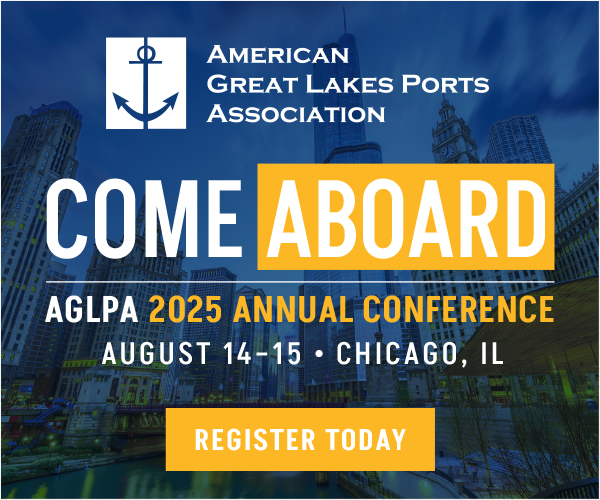Help Wanted: The Great Lakes Continues Efforts In Workforce Development
In June, Michigan’s state agency Environment, Great Lakes and Energy (EGLE) held a webinar entitled “Building a Water Workforce in the Blue Economy” to take a close look at Michigan’s workforce programs, which frequently link with other Great Lakes states. The webinar was part of Michigan’s annual Great Lakes and Fresh Water Week
Following the webinar, Jeff Johnston, from EGLE’s Public Information Office, listed several EGLE initiatives focused on maritime workforce development. EGLE co-sponsors two programs hosted by Michigan Technological University, the Marine Autonomous Research Site and the Smart Ships Coalition which has a particular focus on workforce development. Johnston also said EGLE plans to update an existing “Freshwater Education Partner Database.” Johnston said EGLE is seeking to update an existing “Freshwater Education Partner Database.”
Defining the Blue Economy
EGLE’s reference to the Blue Economy includes water treatment, groundwater and non-navigable streams and estuaries. For the World Bank, the term refers to the “sustainable use of ocean resources for economic growth, improved livelihoods, and jobs while preserving the health of ocean ecosystems.” NOAA now references the New Blue Economy as: “A knowledge-based economy, looking to the sea not just for extraction of material goods, but for data and information to address societal challenges and inspire their solutions.”
Maritime employers recognize that employment and workforce development in all maritime occupations is challenging. A large portion of the current workforce is approaching retirement and it has been difficult to attract younger employees.
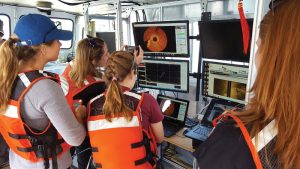 Additionally, the range of skills needed has expanded, as well as the breadth of education required. Entry-level deckhands who can acquire on-the-job training are still in demand, but increasingly maritime occupations are demanding specific and focused technical training and four-year college degrees. Employees need the knowledge, skills and abilities to work with autonomous vessels, alternative fuels and propulsion, digital twins, electronic charting, underwater mapping, computerized logistics and similar specialties. Maritime employers now compete with land-based counterparts who seek individuals with talents that are now applicable across many varied sectors.
Additionally, the range of skills needed has expanded, as well as the breadth of education required. Entry-level deckhands who can acquire on-the-job training are still in demand, but increasingly maritime occupations are demanding specific and focused technical training and four-year college degrees. Employees need the knowledge, skills and abilities to work with autonomous vessels, alternative fuels and propulsion, digital twins, electronic charting, underwater mapping, computerized logistics and similar specialties. Maritime employers now compete with land-based counterparts who seek individuals with talents that are now applicable across many varied sectors.
A recent report from DNV, the maritime certification society, takes a close look at two transformative trends – decarbonization and digitalization – and workforce preparedness in the current decade. DNV writes of a “significant skill gap” regarding emerging fuels such as ammonia, methanol and hydrogen. The same goes for digitalization. DNV writes that “over 81% of (survey) respondents require partial or complete training in dealing with advanced digital technologies.”
Describing Work Differently
Cindy Whittum is a recruitment and internship specialist with EGLE. During EGLE’s webinar Whittum commented that the Agency struggles to find talent, and that she and her team are working to create a talent pipeline. She said that the number of individuals between 16-24 interested in water and maritime jobs is low.
Whittum said that her focus now is to convey to prospective employees how and why their work is important, that working at EGLE offers a chance to contribute to a larger mission. She said this replaces an older approach largely focused on tasks, such as what a person would do during most workdays.
Emily Gochis is project manager with the Lake Superior Stewardship Initiative (LSSI) and directs the Western U.P. (Upper Peninsula) STEM Network (MiSTEM Network Region 16). The Initiative is part of a statewide STEM (science, technology, engineering, math) effort. During the webinar Gochis said there are 27,000 unfilled STEM jobs in Michigan.
Gochis described a number of programs designed to spark and build student interest. She mentioned the “Students to Stewards” program, a partnership with EGLE. LSSI hosts an annual Lake Superior Water Festival for elementary, middle and high school students from Western UP. The festival presents topics from science and engineering to creative writing. It offers hands-on learning opportunities and includes participants from the U.S. Coast Guard, Ottawa National Forest, Isle Royale National Park, Keweenaw Bay Indian Community, and the Copper Harbor Trails Club. The Great Lakes are the dominant focus.
Gochis referenced SOAR – the Student Organization of Aquatic Robotics, based at Dollar Bay-Tamarack City High School. SOAR is a project-based class. Students design and create underwater robotics using technology like computer programming, machining and 3-D printing. It has a business focus, and the students work to solve real-world problems. One recent, award-winning example: The SOAR team engineered an aquatic robot to be used at Isle Royale to help locate zebra mussels in efforts to keep invasive species out of the Great Lakes.
Jobs are Waiting
Ed Bailey is the director of Portfolio & Program Development for the Marine Center at Northwestern Michigan College (NMC) in Traverse City. NMC offers the only bachelor’s degree in Marine Technology in the United States. Current four-year enrollment is about 35 students. There are even fewer in the two-year program because most of the two-year students move to the four-year program. Bailey said every student has a job upon graduation. Those with a bachelor’s degree start at $100,000; two-year degree – $75,000. He said employer demand is so great that the school could accept 100 more students, and each would have a job at graduation.
Bailey said there is a lack of awareness about Blue Water opportunities among prospective students, particularly in rural areas. He believes that schools, economic development groups, industry and state workforce groups all need to work together on workforce development.
Bailey suggested that workforce issues would benefit from a more focused approach. He said that for students, the understanding of working within the Blue Economy is not always clear and needs greater definition. EGLE is working with NMC on a project to better identify blue economy job titles and career paths.
Hans van Sumeren is the director of the Great Lakes Water Studies Institute at NMC. Sumeren said that the overall concept of “workforce” is changing as the maritime knowledge base expands. The historic focus has been on oceans and revenue from industries like fishing and shipping. Now, the New Blue Economy seeks greater understanding of maritime systems beyond the oceans, to lakes, rivers, estuaries and to new and much different topics, such as food production, renewable energy, minerals and mining and even long-term CO2 storage. These shifting vocational fields redefine “maritime workforce.”
Bailey and Sumeren added that maritime skills are “starting to blend.” The demands of a captain operating a vessel from a land-based operations center are different from an individual actually on a vessel on the water. Changes in skills, knowledge and abilities are still coming into focus.
Overseas Mariners Working in Canada
In March, the Chamber of Marine Commerce (CMC) announced that Algoma, CSL, Groupe Desgagnés and McKeil Marine were among the Canadian ship owners welcoming Ukrainian seafarers and other marine personnel after Russia invaded Ukraine in February 2022.
Transport Canada has also announced a reciprocal arrangement between Canada and Philippines “for the recognition of certificates of competency and issuance of endorsements pursuant to regulation I/10 of the STCW Convention.” Similar arrangements had already been signed with Australia, France, Norway, Ukraine, Georgia and the United Kingdom.
Bruce Burrows, president and CEO of CMC, applauded the Canadian government for making it easier for CMC members to employ seafarers from overseas. Burrows noted that additional individuals were expected.
Algoma, based in St. Catharines, Ontario, set up a recruitment team to help Ukrainian applicants understand Canada’s work permit and visa processes, as well as Transport Canada’s maritime requirements.
CMC was asked about the new opportunities to hire foreign personnel, more specifically whether it was a limited window that might close soon.
Burrows doesn’t envision a time limit regarding how long Canadian companies can hire foreign personnel. He said Canadian opportunities pertaining to recognizing foreign seafarers’ certificates and with the “Express Entry” system (linked to “Immigration, Refugees and Citizenship Canada”) “have not had any time constraints placed on them to our knowledge.” He added, however, “the CMC recognizes that the respective departments reserve the right to make changes at any time.”
Burrows said there aren’t any estimates regarding how many overseas mariners might be available to work in the United States and Canada. “The opportunity to access overseas talent to address immediate human resource needs in the marine shipping industry has been a valued development, and the CMC knows from our engagement with members that there have been immediate benefits realized,” he said.
Training, But Not in College
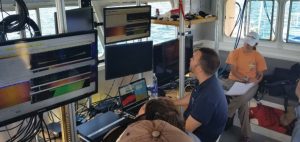 There are also many new training initiatives that are attracting young workers into maritime positions, programs, though, that are not within a college or two-year degree course structure.
There are also many new training initiatives that are attracting young workers into maritime positions, programs, though, that are not within a college or two-year degree course structure.
Julia Fields, the executive director of the Canadian Marine Careers Foundation (CMCF), which works to raise awareness among high school students and others, said that “there are multiple ways to enter the marine sector.”
“Direct-to-job pathways provide the required safety and skills training for entry-level positions onboard vessels, in ports, or shipyards so young workers can start working and earning a paycheck more quickly,” she said.
Fields listed numerous examples, including:
BCIT – British Columbia Institute of Technology – which offers the entry level Bridge Watch Rating program and an enhanced BRW program that is accepting applications from indigenous people and women with program and textbook funding from the Government of Canada through the Oceans Protection Plan. The program provides all courses and certification required for entry-level employment as a deckhand in the marine industry with employers such as BC Ferries, Canadian Coast Guard and Seaspan.
Georgian College provides entry-level courses for large and small commercial vessels. Some courses require just two days’ training. Students receive a certification that allows shipboard employment.
IMQ in Rimouski, Quebec, offers Department of Education College diplomas in Navigation, Marine Engineering, Naval Architecture, and Transport logistics (courses are in French). Additional courses are being developed for navigation and engineering as well as shore-based marine operations.
The CMCF recently launched the Imagine Marine job board, a platform designed to connect professionals with marine employers across Canada. With the Imagine Marine job board, recruiters can showcase their organization, promote job openings, and attract talent. The user-friendly and bilingual (English & French) platform is dedicated to showcasing all marine-related careers whether in the private or public sector, onboard vessels, in ports, waterways, ship and boat yards, marine industrial facilities, colleges, offices or research facilities. The job board is available for free to all CMCF members, with options for non-members to purchase individual or package job postings.
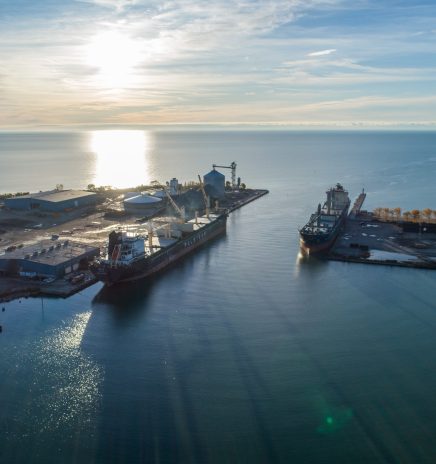
CMCF Releases Canadian Seafarers Pathway Study
A new report released on May 21 by the Canadian Marine Careers Foundation (CMCF) reveals an urgent labor crisis in Canada’s marine sector. Commercial and public sector vessel operators will... Read More

U.S. Shipping Companies Invest in Great Lakes
Critical maintenance is well underway on the U.S.-flagged fleet of lakers tied up at ports across the Great Lakes region in anticipation of the upcoming navigation season. Hundreds of skilled... Read More

